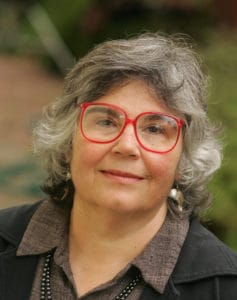From the Executive Director: Whatever they’re called, solutions tables work
 From the Executive Director:
From the Executive Director:
Whatever they’re called,
solutions tables work
BY SARA PATTON %CODE1%The NW Energy Coalition strongly supports a Solutions Table on endangered Columbia Basin salmon, by which we mean comprehensive, multi-party stakeholder negotiations. I had to chuckle when I heard of a high-level federal civil servant’s discomfort with using the term “Solutions Table” to describe the effort. Apparently, the fed would be more comfortable with a “process” than a “table.”
“Solutions Table” evokes a clear and optimistic image. But make no mistake – a lot of work will be needed to bring all the necessary parties together and to forge solutions.
Multi-party stakeholder negotiations are hard, especially when:
- The stakes are high
- The parties have hardened their positions over years of debate and litigation
- All parties have to accept important changes in their lives and livelihoods to achieve real solutions.
The Coalition knows this because finding solutions that all of our diverse members can embrace – or tolerate – is what we do every day. The Save Our wild Salmon coalition knows this from bringing together sports fishing, conservation and commercial fishing groups to work for common goals.
But solutions tables work when nothing else will. During the electricity deregulation juggernaut of the 1990s, the Comprehensive Review brought together all Northwest stakeholders to craft significant protections for consumers and clean energy achievements. Solutions tables helped resolve long-running pitched battles in many Western river basins: the Klamath, the San Joaquin, the Elwha and the White Salmon (Condit dam).
Serious solutions tables work when all parties agree to entertain new possibilities. In citing the Elwha and Condit agreements, I’m not suggesting that removing the four lower Snake River dams is the only solution that salmon advocates will accept. All stakeholders must entertain new solutions, solutions that go beyond habitat restoration projects.
It’s time to give real negotiations a chance. We have been litigating for too long. The judge has given all parties an opening to make the new plan really work for salmon, for farmers, for fishing communities, for utility customers, for clean energy and conservation advocates and for our children.
The region has plenty of experience with inclusive, accountable and raucous negotiations that deliver workable solutions. The NW Energy Coalition and Save Our wild Salmon embrace and embody this approach every day and we have the perseverance to make it work.
I still like “Solutions Table,” but no matter what we call it, now is the time. Let’s get going!



